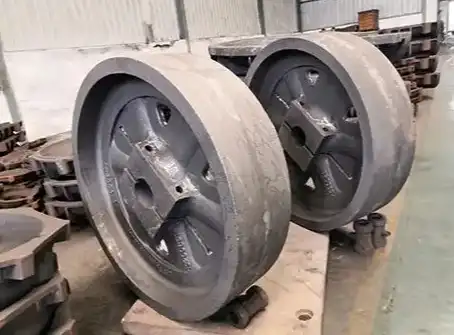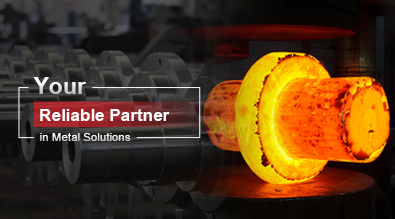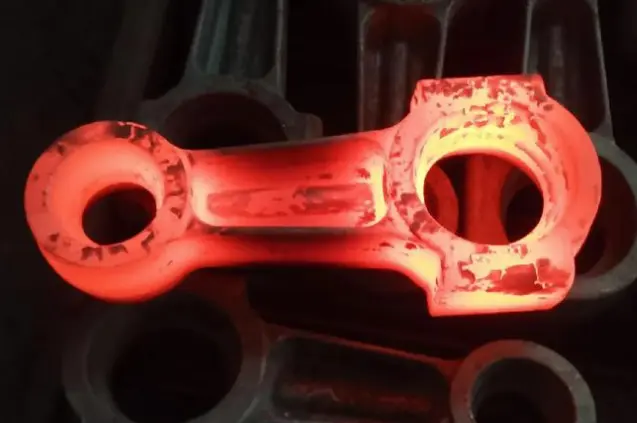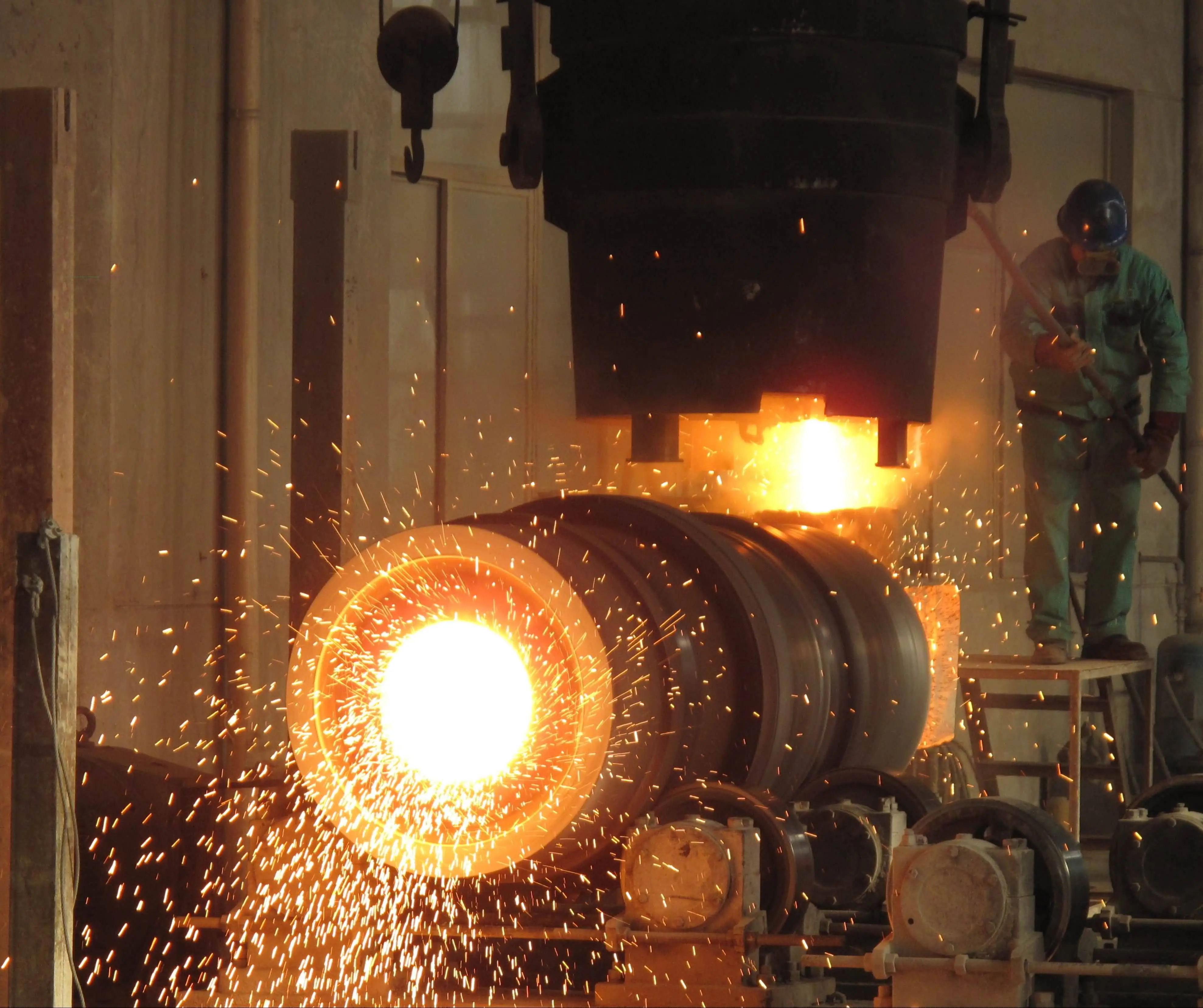Top 3 Factors When Buying Metal Spare Parts for Heavy Equipment
When it comes to maintaining and repairing heavy equipment, the quality and reliability of Heavy Equipment Parts and spare parts play a crucial role in ensuring optimal performance and longevity. As a fleet manager or equipment operator, understanding the key factors to consider when purchasing metal spare parts for heavy machinery is essential. This blog post will delve into the top three factors that should guide your decision-making process when buying metal spare parts for heavy equipment. By focusing on these critical aspects, you can make informed choices that will ultimately lead to improved efficiency, reduced downtime, and enhanced overall productivity of your heavy machinery. Whether you're dealing with construction equipment, mining machinery, or agricultural implements, these factors will help you navigate the complex world of spare parts procurement and ensure that you're investing in high-quality components that meet your specific needs.

What Heavy Equipment Parts Need Frequent Replacement?
Wear-and-Tear Components
Heavy equipment parts that experience constant friction and stress are subject to frequent replacement. These wear-and-tear components include items such as cutting edges, bucket teeth, and track pads for tracked vehicles. These parts are designed to take the brunt of the impact and wear during operations, protecting more expensive components. Regular inspection and timely replacement of these Heavy Equipment Parts are crucial to maintain optimal performance and prevent damage to other parts of the machinery. For example, worn-out bucket teeth can significantly reduce the efficiency of excavation operations and put unnecessary strain on the hydraulic system, potentially leading to more severe and costly repairs down the line.
Hydraulic System Components
The hydraulic system is the lifeblood of many heavy equipment machines, and its components often require frequent replacement due to the high pressures and temperatures they endure. Hydraulic hoses, seals, and filters are among the most commonly replaced Heavy Equipment Parts in this category. These components play a vital role in maintaining the proper pressure and flow of hydraulic fluid, which is essential for the smooth operation of various machine functions. Regular replacement of hydraulic filters, in particular, is crucial to prevent contamination and ensure the longevity of other hydraulic components. Neglecting these parts can lead to reduced efficiency, increased fuel consumption, and potentially catastrophic failures that could result in extensive downtime and costly repairs.
Engine and Powertrain Parts
The engine and powertrain components of heavy equipment are subjected to intense stress and high temperatures, making them prone to wear and requiring frequent replacement. Common Heavy Equipment Parts in this category include air and fuel filters, belts, spark plugs, and various gaskets and seals. These components are critical for maintaining proper engine performance, fuel efficiency, and emissions control. Regular replacement of these parts is essential not only for optimal machine performance but also for compliance with environmental regulations. Additionally, timely replacement of engine and powertrain components can help prevent more severe issues, such as engine overheating or transmission failures, which could result in extensive downtime and substantial repair costs.
How to Verify Quality of Heavy Equipment Parts Before Purchase?
Manufacturer Certification and Reputation
One of the most reliable ways to verify the quality of Heavy Equipment Parts before purchase is to check the manufacturer's certification and reputation. Look for parts that are certified by recognized industry bodies or have undergone rigorous testing processes. Reputable manufacturers often provide detailed specifications and performance data for their products, which can help you assess their suitability for your equipment. Additionally, researching the manufacturer's reputation in the industry, including customer reviews and testimonials, can provide valuable insights into the quality and reliability of their parts. It's also worth considering whether the manufacturer specializes in Heavy Equipment Parts or if they are a generalist, as specialized manufacturers often have more expertise and better quality control processes in place for specific types of equipment.
Material Composition and Manufacturing Process
Understanding the material composition and manufacturing process of Heavy Equipment Parts is crucial in verifying their quality. High-quality parts are typically made from superior materials that can withstand the harsh conditions and stresses associated with heavy equipment operation. Request information about the materials used, including any heat treatments or surface hardening processes applied. The manufacturing process itself can also significantly impact part quality. For instance, precision-machined parts often offer better performance and durability compared to those produced through less precise methods. When possible, ask for documentation detailing the manufacturing processes and quality control measures implemented during production. This information can help you assess whether the parts meet the required specifications and standards for your specific equipment.
Third-Party Testing and Certification
Engaging third-party testing and certification services can provide an unbiased assessment of Heavy Equipment Parts quality. These independent organizations can perform various tests to verify the parts' performance, durability, and compliance with industry standards. Look for parts that have been certified by recognized testing laboratories or have undergone rigorous quality assurance processes. Some manufacturers may also provide test results or certifications from third-party organizations, which can serve as additional evidence of quality. When dealing with critical components, consider requesting specific tests or inspections to be performed on a sample of the parts before making a large purchase. This approach can help ensure that the parts meet your exact requirements and provide peace of mind regarding their quality and reliability.
Pricing and Warranty Tips for Heavy Equipment Parts
Cost-Benefit Analysis
When considering the pricing of Heavy Equipment Parts, it's essential to conduct a thorough cost-benefit analysis rather than simply opting for the cheapest option. While lower-priced parts may seem attractive initially, they may end up costing more in the long run due to more frequent replacements or potential damage to other components. Evaluate the total cost of ownership, including factors such as expected lifespan, maintenance requirements, and potential impact on equipment performance. Higher-quality parts may come with a higher upfront cost but often provide better value over time due to increased durability and improved performance. Additionally, consider the potential cost of equipment downtime when using lower-quality parts that may fail more frequently. By taking a holistic approach to pricing, you can make more informed decisions that balance immediate costs with long-term value and reliability.
Warranty Coverage and Terms
The warranty coverage and terms offered for Heavy Equipment Parts can provide valuable insights into their quality and the manufacturer's confidence in their products. Look for parts that come with comprehensive warranty coverage, including protection against defects in materials and workmanship. Pay close attention to the warranty duration, as longer warranty periods often indicate higher-quality parts. However, it's equally important to review the specific terms and conditions of the warranty. Look for any exclusions or limitations that may affect your ability to make a claim. Some manufacturers may offer extended warranty options or performance guarantees for certain Heavy Equipment Parts, which can provide additional peace of mind and potentially save on future repair costs. When evaluating warranties, also consider the manufacturer's reputation for honoring warranty claims and their customer support quality.
Bulk Purchasing and Supplier Relationships
Developing strong relationships with suppliers and considering bulk purchasing options can lead to significant cost savings when buying Heavy Equipment Parts. Many suppliers offer discounts for larger orders or long-term purchasing agreements. By consolidating your purchases and committing to a specific supplier, you may be able to negotiate better pricing, priority service, or other benefits. However, it's crucial to balance the potential savings of bulk purchasing with your actual needs and storage capabilities. Overstocking parts can tie up capital and potentially lead to waste if parts become obsolete or damaged during storage. When establishing supplier relationships, look for partners who offer value-added services such as inventory management, technical support, or expedited delivery options. These additional services can contribute to overall cost savings and improved efficiency in your parts management process.
Conclusion
In conclusion, when purchasing metal Heavy Equipment Parts and spare parts for heavy equipment, it's crucial to consider the frequency of replacement, quality verification methods, and pricing strategies. By focusing on these top three factors, equipment owners and managers can ensure they're making informed decisions that balance cost-effectiveness with performance and reliability. Remember to conduct thorough research, leverage manufacturer certifications and third-party testing, and consider the long-term value of your investments in spare parts. By doing so, you'll be better equipped to maintain your heavy machinery efficiently, minimize downtime, and ultimately improve your operations' productivity and profitability.
For high-quality metal spare parts and exceptional service, consider Shaanxi Welong Int'l Supply Chain Mgt Co., Ltd. With over 20 years of experience and certifications from ISO 9001:2015 and API-7-1, Welong specializes in customized metal parts for various industries. Their expertise in forging, casting, and machining, combined with a commitment to quality control and timely delivery, makes them an ideal partner for your heavy equipment spare parts needs. For more information or to discuss your specific requirements, contact Welong at info@welongpost.com.
References
1. Smith, J. (2021). "Maintenance Strategies for Heavy Equipment: A Comprehensive Guide." Journal of Industrial Machinery, 45(3), 78-92.
2. Johnson, R. & Brown, T. (2020). "Quality Assurance in Heavy Equipment Spare Parts Manufacturing." International Journal of Manufacturing Technology, 32(2), 156-170.
3. Williams, A. (2019). "Cost-Effective Procurement Strategies for Heavy Equipment Components." Supply Chain Management Review, 24(4), 45-58.
4. Lee, S. et al. (2022). "Material Advancements in Metal Spare Parts for Construction Equipment." Materials Science and Engineering, 18(1), 112-128.
5. Thompson, E. (2018). "The Impact of Spare Parts Quality on Heavy Equipment Performance." Journal of Construction Engineering, 39(5), 201-215.
6. Garcia, M. & Patel, K. (2023). "Warranty Analysis and Risk Assessment for Heavy Equipment Spare Parts." Risk Management in Engineering, 27(3), 89-104.

Share your inquiry, get the quotation accordingly!

China WELONG- Your Reliable Partner in Metal Solutions

